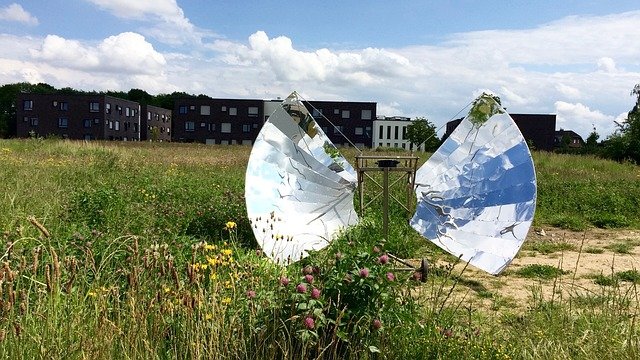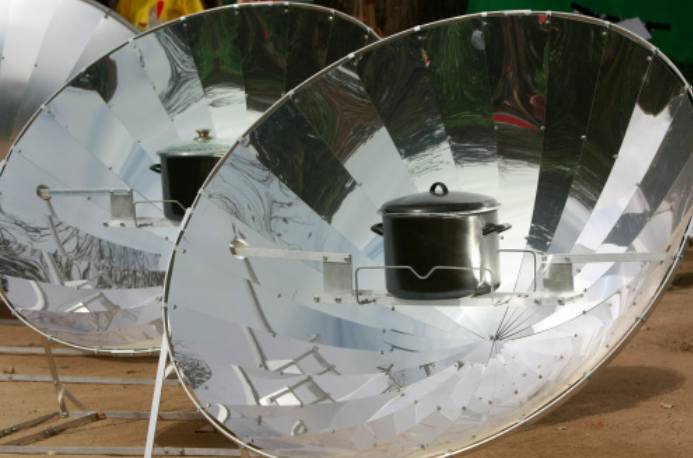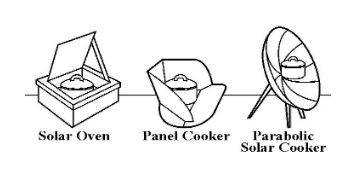Advantages and Disadvantages of Solar Cooker
The advantages and disadvantages of the solar cooker are pretty much the same as solar panels or any other solar-based products have.
All solar products have one common problem that they have no leverage for us without sunlight, and the solar cooker (similar to oven) is one of those products.
So let’s see why we still can use a solar cooker over conventional cookers despite being not the best;
Advantages and Disadvantages of Solar Cooker
Sunlight is used by the solar cooker to heat and cook food. The advantages of using a solar cooker are following;
Advantages/Pros of Solar Cooker
- Cost-effective: Sunlight is free and unlimited, so it means you just need a solar cooker to buy and operate under sunlight. And you would stop getting recurring bills every month. You can save a handsome amount of money.
- Eco friendly: If you live in a hot area, surely, a conventional cooker makes your house hot while cooking. Hence, the solar cooker fits best here as it produces zero-emission of gases such as carbon monoxide (as there is no ash or residue). And that maintains better air quality indoor and does not make the kitchen hot, and you stay healthy. Other than that, intense sunlight availability is also a plus point.
- It makes cooking more nutritious and Hygienic.
- The vulnerability of food to be burned is zero whether you are cooking, baking, roasting or grilling.
- Latest solar cookers can divert the sun’s rays to it for better efficiency.
- You no longer depend on gas or electricity, so load-shedding (that usually happens in Asia and Africa) of gas or electricity does not affect you.
- One-time investment
- Solar cookers are available in different sizes and designs.
Other than the above points, you can cook anything. It remains moist and soft in baked food.
Disadvantages/Cros of Solar Cooker
The disadvantages of using a solar cooker are following;
- Dependence on Sunlight/Useful in the daytime: The very first disadvantage of using a solar cooker is its dependency on the sun. So if there is rain, winter or cloudy weather or no sunlight, then no cooking.
- Reflection of sunlight somehow into your Eye can damage your Eyesight. Sunlight Beams are highly intense.
- Backup: You cannot be dependant solely on Solar Cooker. You would need a conventional stove/cooker or something that you can use in rain or downtimes. Plus with a solar cooker, you would need to start cooking early than usual like in the daytime.
- Less Efficient: Another notable thing that matters a lot is it consumes more time than conventional stoves do. So in case if you are in hurry to have food, you would need to use a normal stove.
- The manufacturing of solar cookers is costly.
- You have to find a suitable place in your house for better exposure to sunlight. You always need to change the position of the reflector according to the sun.
Improvement
After experiencing problems in operation, companies did work and introduced some improvements in the shape of different types. So now the commercial version of solar cooker generally falls into three categories, they are following;
Picture Credit goes to Toppr.com.
- The Hot Box
- The Parabolic Dish
- The Vacuum Tube Cooker
- The Panel Cooker
The Hot Box
The hot box is an insulated square or rectangular box. It comes with a glass or plastic lid. It has multiple panels for focusing sunlight radiation into the internal side. Flat black colour over it helps absorbing heat better.
The Parabolic Dish
It can attain heat in the range of 250 degrees C. There are no flat panels, it has a parabolic dish/plate. It works as a lens to focus sunlight to a point. When we talk about time consumption and temperature, its shape is quite supportive.
The Vacuum Tube Cooker
The vacuum tube cooker comprises a pair of tubes. There is a vacuum between the tubes heat insulator. It confirms that the heat reflects on the outer tube perfectly and gets absorbed by the inner ones. This structure helps in reducing cooking time.
The Panel Cooker
This is a simple cooker. It comprises more than one panel to fold out sunlight radiation.
But overall, it is the weather that increases the efficiency of all the above types.
Conclusion
You cannot wholly depend on a solar cooker. What you can do is use for cooking till 3:00 PM, and after that, you can get a conventional stove in handy.
Solar cookers are best for those people living in an area where gas or electricity is available to date. Or if you are doing on a trip, the solar cooker can make your food there.




![Top 10 Largest Solar Power Plants in the World [2021]](https://easysolar.guide/wp-content/uploads/2021/07/top-10-largest-solar-power-plants-in-the-world-2021-60x57.jpg)
